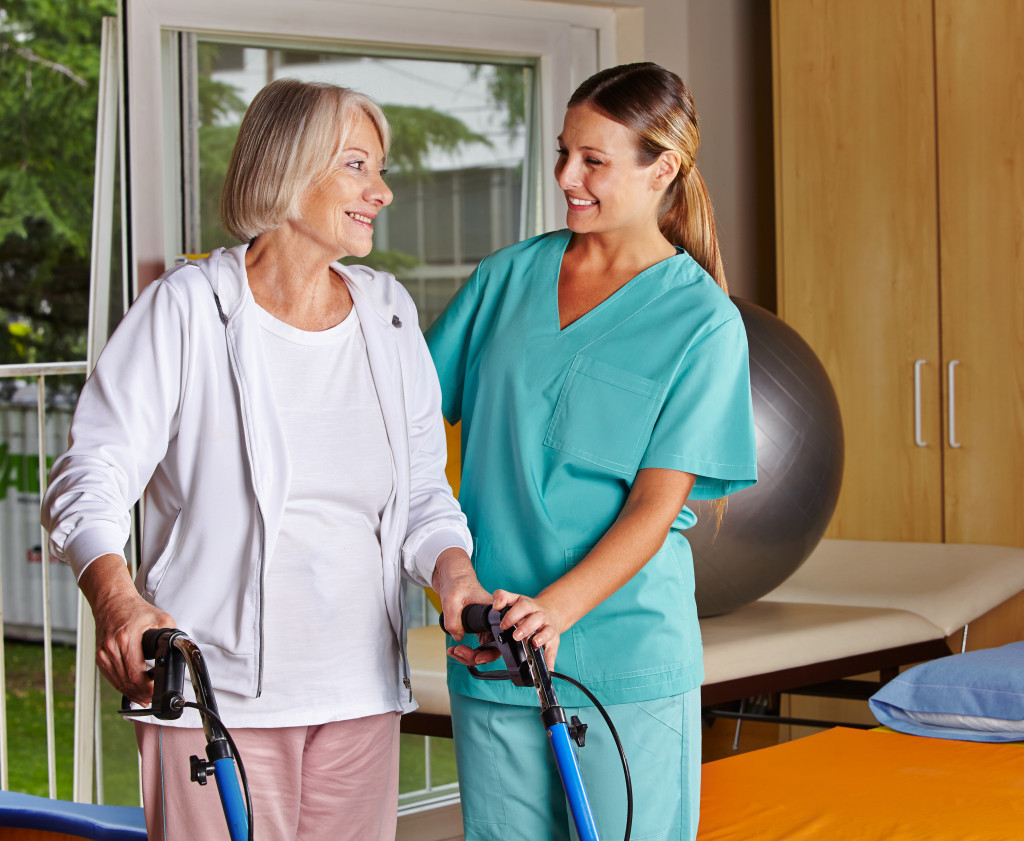According to the Centers for Disease Control and Prevention (CDC), three types of people are prone to get seriously impacted during this COVID-19 crisis. These include the elderly, people with disabilities, and those with underlying health conditions.
But what if your seniors aren’t only old but with medical conditions as well? They can be the most vulnerable during this pandemic. As such, you must do what it takes to keep them safe and protected. Your ultimate goal is to prolong their life as much as possible. The last thing you want to happen is to see them get infected with the novel coronavirus, suffer, and perish in an instant.
If you have older parents or seniors with critical health conditions, here’s how to take care of them during the pandemic:
1. Consider the safety of the medical facility
If your seniors have a debilitating health condition, you must entrust them to a medical facility. Hospitals have a team of legitimate healthcare professionals (HCPs) who can take care of the elderly. These facilities have all the needed equipment, tools, and resources required to treat patients and save lives.
The problem, however, is that hospitals can be the most unsafe place during this COVID-19 crisis. That’s why you must be highly critical of your chosen medical facility for your loved ones. As much as possible, it must have robust health and safety measures in place. Ultimately, rush your elderly loved one to a safe hospital only if it’s an emergency case.
2. Work with the best health professionals
It’s safe to say that HCPs are the best people to care for your seniors with health conditions. Unless you’re a health professional yourself, you must leave your elderly loved one in the hands of the experts. But same with choosing a facility, be highly selective of the doctors for your loved ones.
If you have the financial means, it’s best to hire a health professional to ensure your older parents have personalized care. However, most of these HCPs are busy and preoccupied during this unprecedented time. They have the responsibility to treat multiple patients and save lives. Hence, be sure to make the necessary adjustments.

3. Get home health care services
As mentioned above, it’s best to bring your elderly loved one to a medical facility if it’s already an emergency. But if your seniors have medical conditions, they must receive consistent health care. That is where home health care services come into the picture.
The home health care sector has become the fastest-growing industry during this pandemic. Many individuals and families hire physicians, nurses, or caregivers to take care of their loved ones at home. These health professionals do more than provide medical diagnoses and treatments. They offer personalized care and even home aide services.
4. Entrust them to an assisted living facility
In some cases, preoccupied families entrust their seniors to a nursing home or an assisted living facility. This option is a practical solution for busy individuals who want to ensure their loved ones are taken care of.
If your older parents have long been in a facility, take ample time to check the place. Apart from the usual accommodation and regular treatments, ensure the facility is free of the novel coronavirus. The last thing you want to happen is for your loved ones to get COVID-19-infected in a supposed-to-be safe facility.
5. Put them in a palliative or hospice care facility
It’s disheartening to know that some seniors already have a debilitating health condition or a terminal illness. Chances are, you want to extend the life of your loved ones as much as possible. Even if you know that your seniors will die very soon, you want to ensure they live a comfortable and quality life in their remaining days.
That said, the best course of action is to put your elderly loved one in a palliative or hospice care facility. While palliative care entails providing medical treatment and health care for a severe illness, hospice care involves easing pain and providing comfort for those with less than six months to live. Hence, consider either of the two options for your loved ones.
At this point, you now know what it takes to take care of your elderly loved one with a critical health condition. As such, be sure to follow some practical steps discussed above. While the COVID-19 pandemic can be unfavorable to them, you can do something to keep them safe and protected. No matter how old and critical your seniors are, they deserve to have a quality life during their remaining days.
